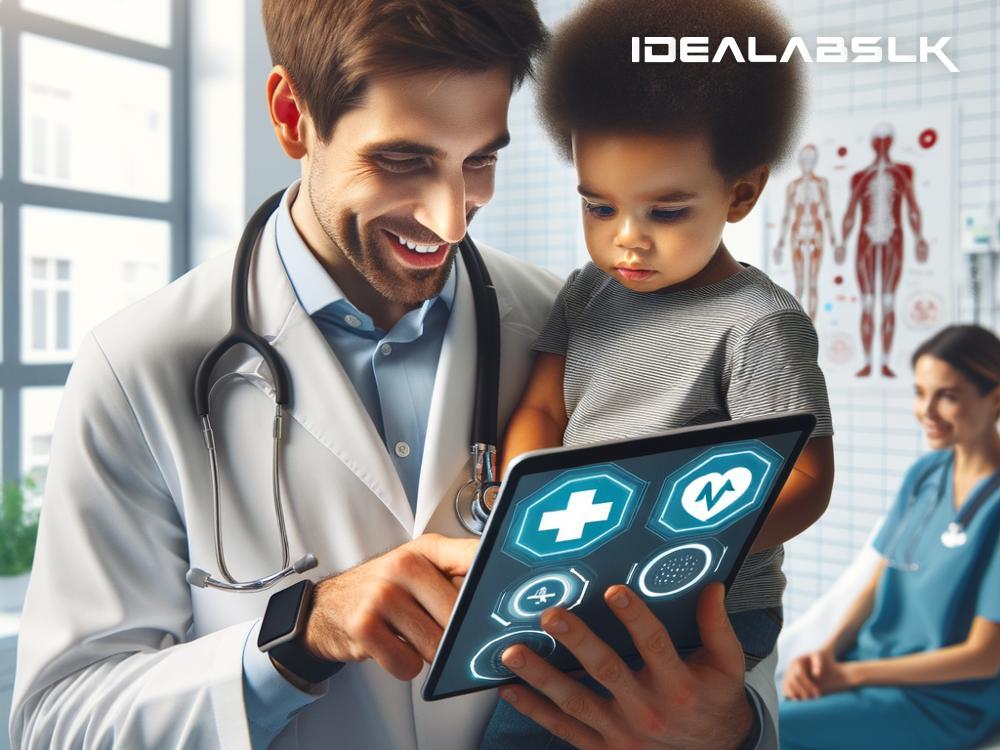How Technology is Shaping the Future of Pediatric Healthcare: From Virtual Care to AI in Diagnostics
As we leap into the future, the world of pediatric healthcare is transforming in ways we once only imagined in science fiction stories. Technology, with its broad spectrum, from virtual care to artificial intelligence (AI) in diagnostics, is revolutionizing how our children receive healthcare services. This transformation promises to make healthcare more accessible, personalized, and efficient than ever before. Let's delve into how technology is shaping the future of pediatric healthcare.
Virtual Care: Bringing the Doctor Home
Imagine your child is sick, and instead of bundling them up and rushing to the hospital, you connect with a pediatrician via a video call. This is the reality of virtual care or telehealth. Virtual care has seen a significant uptick, especially during times when visiting hospitals was challenging. It enables doctors to conduct consultations, offer advice, and monitor patients remotely, reducing the need for physical visits. This not only saves time but also makes healthcare more accessible to families living in remote areas.
Virtual care is particularly beneficial for managing chronic conditions like asthma or diabetes, where regular monitoring is crucial. Healthcare professionals can schedule virtual check-ups, adjust medication, and provide guidance on managing these conditions without the child having to leave their home. It's a game-changer that's making pediatric healthcare more inclusive and convenient.
AI in Diagnostics: Smarter, Faster, More Accurate
Artificial Intelligence (AI) sounds like a term straight out of a sci-fi movie, but it's very much a reality in today's healthcare landscape. AI's role in diagnostics is perhaps one of the most exciting advancements. With the ability to analyze vast amounts of data in seconds, AI is helping doctors diagnose illnesses with incredible speed and accuracy. In the world of pediatric healthcare, this means quicker and more accurate diagnoses for our children.
One of the standout benefits of AI in diagnostics is its potential to recognize patterns and anomalies that might escape the human eye. For example, in the case of rare genetic disorders, AI can analyze genetic information and medical images to help doctors pinpoint the disorder, sometimes even before symptoms appear. This early detection is crucial in managing and treating various conditions more effectively.
AI is also revolutionizing the way we understand and anticipate health outcomes. By analyzing a child's medical history alongside vast datasets, AI can predict the potential for certain conditions, allowing for preventative measures to be put in place. This predictive aspect of AI has the power to not only save lives but also improve the quality of life for countless children.
The Power of Wearables and Monitoring Devices
Another technological advancement reshaping pediatric healthcare is wearable devices and monitoring tools. These devices, ranging from smartwatches that track activity levels to sensors that monitor vital signs, are empowering both parents and healthcare professionals with real-time data about a child's health.
Imagine a band-aid-like sensor that monitors a child's temperature 24/7 or a wearable device that alerts parents and doctors if a child's asthma appears to be worsening. These tools are making it possible to catch potential health issues before they become serious, enabling prompt and appropriate intervention.
Wearables and monitoring devices are also instrumental in managing chronic conditions. They offer constant monitoring in a non-intrusive way, providing peace of mind for parents and valuable data for healthcare providers. This ongoing surveillance ensures that any deviations from the norm can be addressed quickly, keeping the child's health on track.
Nurturing a Technologically Empowered Future
The fusion of technology and pediatric healthcare is creating a future where healthcare is not only about treating illnesses but also about preventing them. It's a future where healthcare is accessible to every child, regardless of where they live. As virtual care becomes more widespread, AI diagnostics become more refined, and wearables more advanced, the possibilities are endless.
However, amidst this technological revolution, it's crucial to ensure that the human touch in pediatric healthcare remains. Technology should enhance, not replace, the compassion and care that healthcare professionals provide.
As we move forward, the challenge will be to balance technology with humanity, ensuring that as pediatric healthcare becomes more efficient and effective, it also becomes more empathetic. The future of pediatric healthcare is bright, filled with technological advancements that promise to transform the lives of millions of children. Let's embrace this future, where technology and human care go hand in hand to nurture healthier, happier generations.

